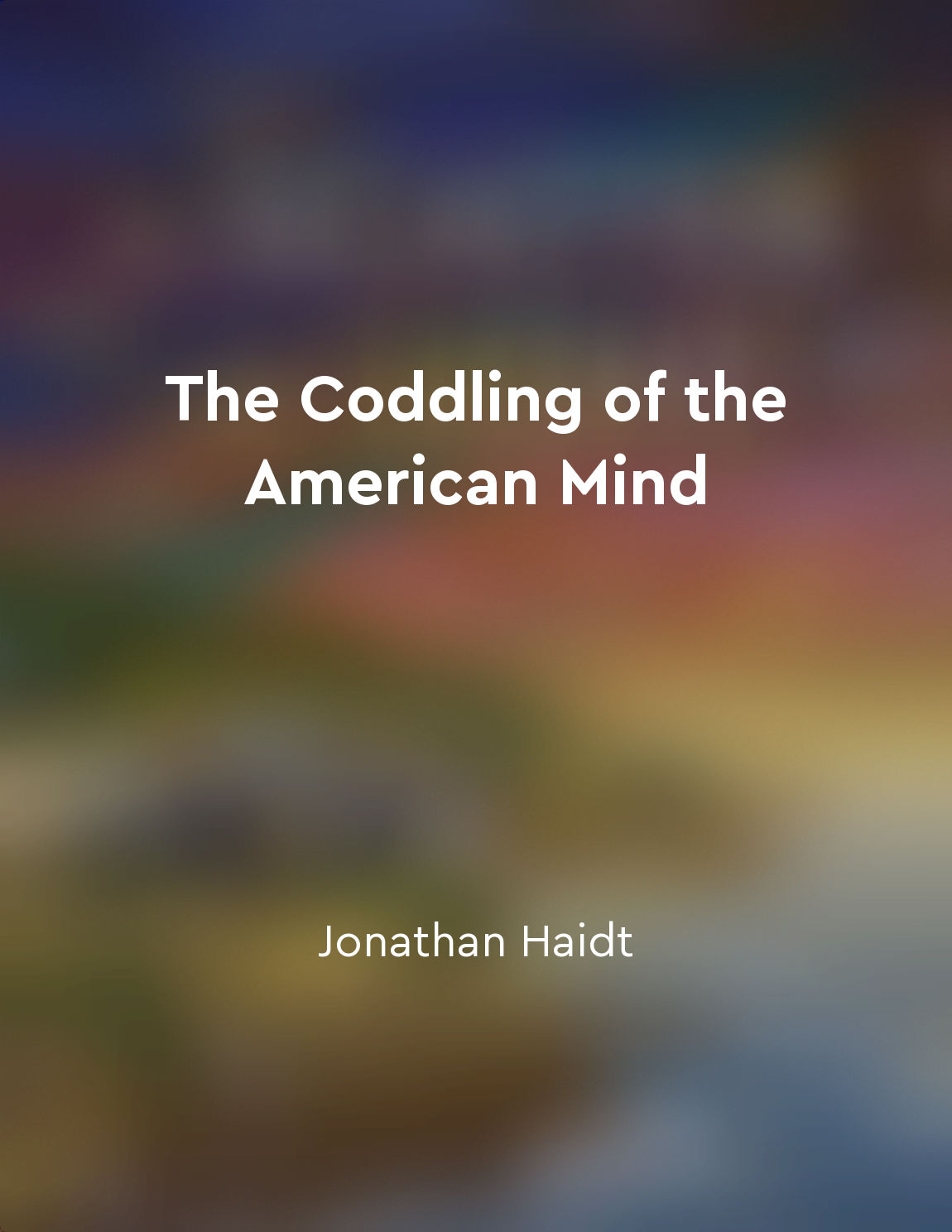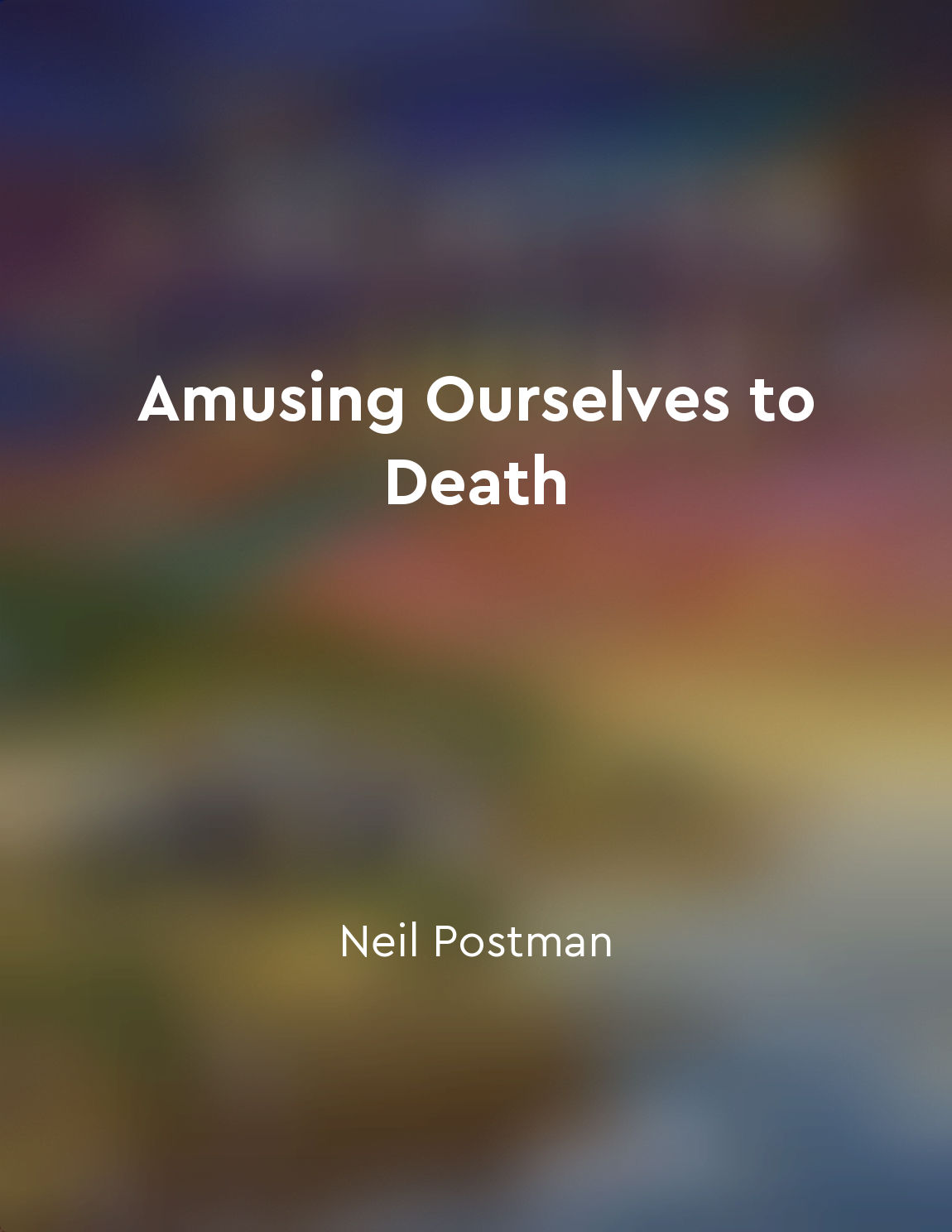We are losing our ability to think deeply from "summary" of The Internet of Us: Knowing More and Understanding Less in the Age of Big Data by Michael P. Lynch
As we immerse ourselves in the vast sea of information available on the internet, our ability to engage in deep, critical thinking is gradually diminishing. The constant stream of content bombarding us from various sources leaves little time for reflection and contemplation. We have become accustomed to skimming through articles, tweets, and status updates, consuming information in bite-sized chunks rather than delving into complex ideas. In the age of big data, we are encouraged to prioritize quantity over quality, speed over depth. The emphasis on instant gratification and quick answers has led to a decline in our capacity for sustained concentration and deep reasoning. Instead of immersing ourselves in a subject and exploring its nuances, we tend to rely on superficial summaries and soundbites to form our opinions. The rise of social media and search engines has made it easier than ever to access information, but this convenience comes at a cost. We are increasingly outsourcing our thinking to algorithms and automated recommendations, sacrificing our autonomy and critical faculties in the process. By relying on these tools to filter and curate content for us, we risk losing the ability to think independently and evaluate information for ourselves. Moreover, the echo chambers created by personalized news feeds and social media algorithms further limit our exposure to diverse perspectives and challenging ideas. We are more likely to be surrounded by like-minded individuals who reinforce our existing beliefs, making it difficult to engage in meaningful dialogue and intellectual debate. This insularity hinders our ability to think critically and consider alternative viewpoints. In order to combat the erosion of our cognitive abilities, we must make a conscious effort to resist the temptations of instant gratification and shallow engagement. By seeking out in-depth analysis, engaging with long-form content, and engaging in thoughtful discussions, we can cultivate our capacity for deep thinking and intellectual rigor. Only then can we break free from the constraints of the internet age and reclaim our ability to think deeply and critically about the complex world around us.Similar Posts
The erosion of civil liberties diminishes the rights of individuals
The erosion of civil liberties is a dangerous trend that threatens the rights of individuals in society. When civil liberties a...

Overprotection harms resilience
The instinct to protect our children is natural and powerful. We want to shield them from harm, both physical and psychological...
Our relationship with technology shapes our understanding of the world
Michael P. Lynch argues that our interactions with technology play a crucial role in shaping our perception and comprehension o...
Sustainability practices gained importance
In a rapidly changing world where the demands on our planet are increasing, sustainability practices have become more important...
The internet challenges traditional notions of knowledge
The internet has fundamentally altered the way we access information, challenging traditional ideas about knowledge. In the dig...
Critical thinking is a bridge to understanding expertise
Critical thinking serves as a crucial link to grasping expertise in a particular field. It is not merely about questioning ever...

Television's emphasis on entertainment dulls our intellect
Neil Postman argues that television, as a medium of communication, places a heavy emphasis on entertainment rather than on the ...
Screen time is valuable
In our modern digital age, screen time has become an integral part of our daily lives. Many people view it as a waste of time, ...
The internet allows us to selfselect the information we consume
In our modern society, the internet has revolutionized the way we access information. With just a few clicks, we can find a vas...

TV content shapes our values and beliefs
Neil Postman argues that television content has a profound impact on shaping our values and beliefs. He emphasizes that the med...
